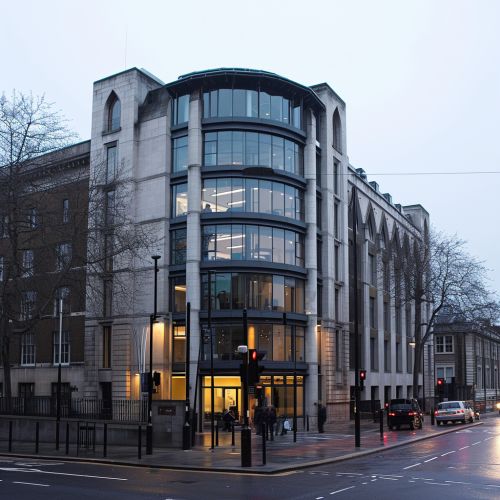Amnesty International
Overview
Amnesty International is a global non-governmental organization that focuses on human rights. The organization claims to have more than seven million members and supporters around the world.
The stated objective of the organization is "to conduct research and generate action to prevent and end grave abuses of human rights, and to demand justice for those whose rights have been violated."
Amnesty International was founded in London in 1961, following the publication of the article "The Forgotten Prisoners" in The Observer on 28 May 1961, by the lawyer Peter Benenson. Amnesty draws attention to human rights abuses and campaigns for compliance with international laws and standards. It works to mobilize public opinion to put pressure on governments that let abuse take place. The organization was awarded the 1977 Nobel Peace Prize for its "defence of human dignity against torture," and the United Nations Prize in the Field of Human Rights in 1978.


History
Amnesty International was founded in London in 1961, following the publication of the article "The Forgotten Prisoners" in The Observer on 28 May 1961, by the lawyer Peter Benenson. According to Benenson's own account, he was travelling in the London Underground on 19 November 1960 when he read that two Portuguese students from Coimbra had been sentenced to seven years of imprisonment in Portugal for allegedly "having drunk a toast to liberty". Researchers have never traced the alleged newspaper article in question. In 1960, Portugal was ruled by the authoritarian Estado Novo regime, and anti-regime conspiracies were vigorously repressed by the Portuguese state police and deemed anti-Portuguese. He was shocked and angered by the news, and by the time he arrived at his destination, he had already decided to form an organization to promote the protection of human rights.
Benenson worked with friend Eric Baker. Baker was a member of the Religious Society of Friends who had been involved in funding the British Campaign for Nuclear Disarmament as well as becoming head of Quaker Peace and Social Witness, and in his memoirs, Benenson described him as "a partner in the launching of the project". In consultation with other writers, academics and lawyers and, in particular, Alec Digges, they wrote via Louis Blom-Cooper to David Astor, editor of The Observer newspaper, who, on 28 May 1961, published Benenson's article "The Forgotten Prisoners". The article brought the reader's attention to those "imprisoned, tortured or executed because his opinions or religion are unacceptable to his government" or, put another way, to violations, by governments, of articles 18 and 19 of the Universal Declaration of Human Rights. The article described these violations occurring, on a global scale, in the context of restrictions to press freedom, to political oppositions, to timely public trial before impartial courts, and to asylum. It marked the launch of "Appeal for Amnesty, 1961", the aim of which was to mobilize public opinion, quickly and widely, in defence of these individuals, whom Benenson named "Prisoners of Conscience". The "Appeal for Amnesty" was reprinted by a large number of international newspapers. In the same year, Benenson had a book published, Persecution 1961, which detailed the cases of nine prisoners of conscience investigated and compiled by Benenson and Baker.
Structure
Amnesty International is a democratic movement, answerable to its own impassioned worldwide membership. It is independent of any government, political ideology, economic interest or religion. It does not support or oppose any government or political system, nor does it support or oppose the views of the victims whose rights it seeks to protect. It is concerned solely with the impartial protection of human rights.
Amnesty International is financed largely by fees and donations from its worldwide membership. It says that it does not accept donations from governments or governmental organizations. These principles are established in the Statute of Amnesty International, which has been added to and amended by successive International Council Meetings, the movement's highest decision-making body.
Amnesty International is based in London, with an international secretariat of about 500 staff members. The organization also has local sections in more than 50 countries, each of which is an autonomous body within the international movement. The international secretariat operates through a number of thematic teams, each led by a team director. These teams are responsible for carrying out Amnesty International's research, lobbying, advocacy and mobilization work on their respective issues.
Campaigns
Amnesty International's campaigns generally start with research into alleged abuses of human rights, carried out by a team of researchers who are experts in the relevant country or issue. The organization's researchers often undertake fact-finding missions to investigate allegations of human rights abuses.
Amnesty International's main campaigning themes include, but are not limited to: abolition of the death penalty; ending torture; rights of refugees, migrants, and asylum seekers; rights of prisoners; rights of Indigenous peoples; protection of human dignity; and the rights of women, children, and LGBTI individuals. It also campaigns on various issues related to economic, social and cultural rights, including the rights to education, health, work, housing, food and water, and to freedom from forced eviction.
Criticism and controversy
Amnesty International has been criticized by governments, groups and individuals for its activities. Some critics have accused the organization of having a political bias, while others have criticized its methods of gathering and presenting evidence of human rights abuses. Amnesty International has also been criticized for its perceived failure to sufficiently criticize certain governments or groups, or for its perceived overemphasis on certain types of human rights abuses.
Despite these criticisms, Amnesty International continues to be widely respected for its contributions to the promotion and protection of human rights worldwide.
